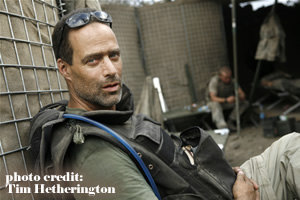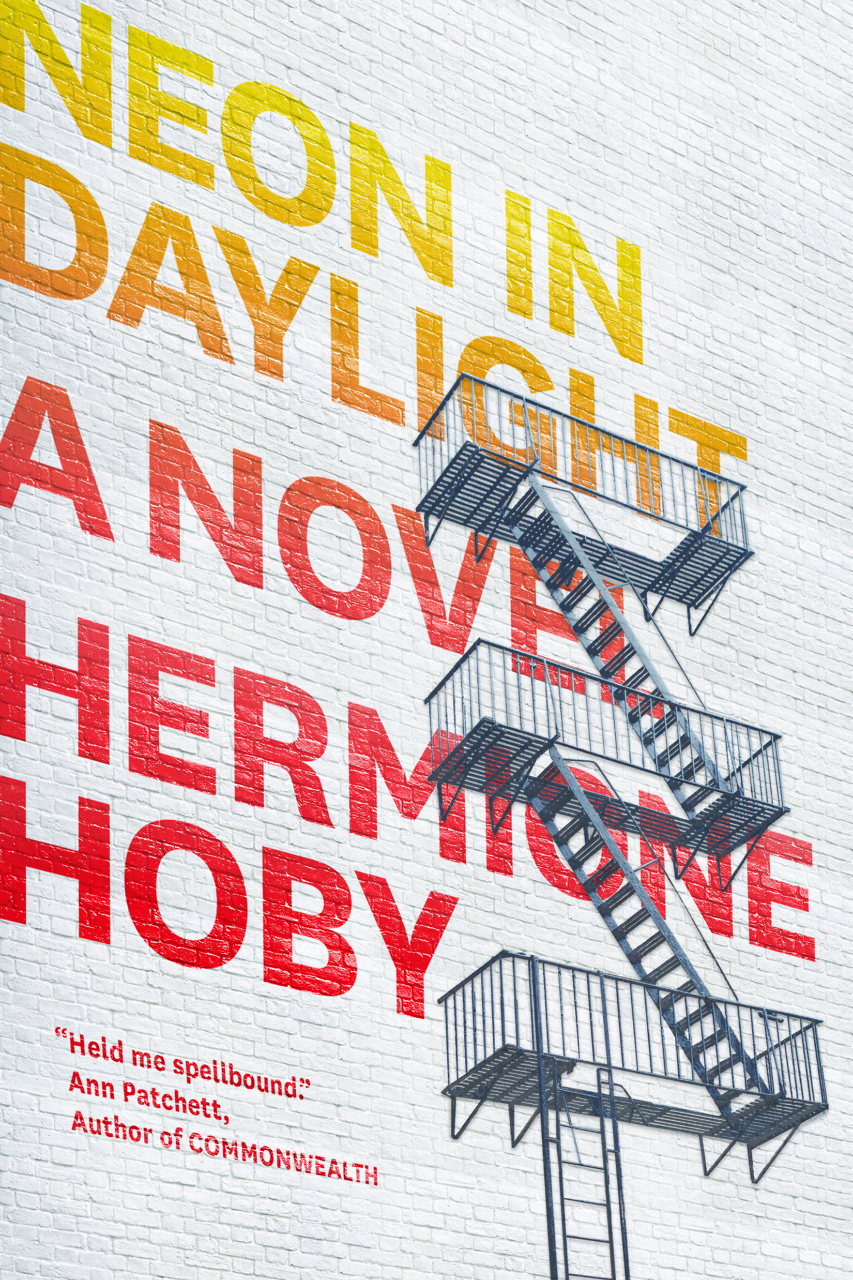The Longest War
As the war in Afghanistan drags on, Sebastian Junger joins the ranks of Michael Herr and Ernie Pyle in exploring the psychological horrors—and insidious appeal—of modern warfare
On Monday, June 7, the war in Afghanistan became the longest in U.S. history, surpassing the eight and a half years the nation officially spent in Vietnam. As in that seemingly endless conflict, American troops in Afghanistan face a determined guerilla resistance that exploits hostile terrain to maximum advantage. Combat casualties have been heavy, and nowhere heavier than in the Korengal Valley, which sits about fifty miles due north of the Khyber Pass. Hellishly hot in the summer, bitterly cold in the winter, it is a place where foreign fighters infiltrate from the high peaks of Pakistan, paying local herdsman five dollars a day to take pot-shots at Americans crouched in tiny outposts. Sebastian Junger, author of the nonfiction bestsellers The Perfect Storm and A Death in Belmont, traveled to the Korengal Valley in 2007 and 2008 on assignment for Vanity Fair to produce a series of articles on the most active combat unit within the U.S. Army. His reporting became the basis for a fascinating book that chronicles the daily practice of war.
 Warfare has always provided good books. American fiction, it could be argued, grew mostly through war stories from naturalism to modernism to postmodernism, starting with Stephen Crane’s Red Badge of Courage, progressing through Hemingway and Ford to Mailer and Michener and ultimately to Vonnegut and O’Brien. Likewise, war has engendered some of the best American nonfiction, from Stephen Crane’s reporting of the Spanish-American War through Ernie Pyle’s eyewitness accounts in World War II to the masterful work of Michael Herr and Philip Caputo in Vietnam. Readers tend to trust journalists willing to be shot at in order to share their observations.
Warfare has always provided good books. American fiction, it could be argued, grew mostly through war stories from naturalism to modernism to postmodernism, starting with Stephen Crane’s Red Badge of Courage, progressing through Hemingway and Ford to Mailer and Michener and ultimately to Vonnegut and O’Brien. Likewise, war has engendered some of the best American nonfiction, from Stephen Crane’s reporting of the Spanish-American War through Ernie Pyle’s eyewitness accounts in World War II to the masterful work of Michael Herr and Philip Caputo in Vietnam. Readers tend to trust journalists willing to be shot at in order to share their observations.
We—not just Americans, but pretty much humanity as a species—really like war stories. “War is a big and sprawling word that brings a lot of human suffering into the conversation,” Junger explains, “but combat is a different matter. Combat is the smaller game that young men fall in love with, and any solution to the human problem of war will have to take into account the psyches of these young men.”
The most ancient tales of any culture tend to recount heroic action in combat. Perhaps the reason is biological: evolution may favor those societies with the best war stories, for they inspire the bravest warriors. Tales of the lance and broadsword were all well and good for millennia, but once death became mechanized, driven by impersonal machines that rained terror from afar, the nature of the war story—and thus the image of ourselves that war stories project—began to change. In War, Sebastian Junger joins the ranks of Herr and Pyle in bringing to readers a true picture of behavior of the young men of our time on the front lines of their generation’s most devastating war.
This may be a more accurate war story than most because Junger was joined at the front by photographer Tim Hetherington, with whom he produced the documentary “Restrepo,” which depicts many of the events chronicled in the book. (Juan Restrepo is a much-admired soldier killed early on in the action; in death he becomes the namesake of a new, dangerous outpost overlooking the main path through the valley.) Both men carried video cameras at nearly all times, so offhand comments in the midst of a firefight appear in the book directly as transcribed from tape. The locker-room banter and roughhousing of men waiting for battle seem so real because they are real, the conversations actual rather than reconstructed.
 Although many women serve—and are killed and injured—with U.S. forces in Afghanistan and Iraq, the unit Junger joined was wholly male, and it is a wholly male story that unfolds. “The one absolute impossibility at Restrepo—you could even get booze if you wanted—was sex with a woman,” Junger writes, “and the one absolute impossibility back home was combat. Whether the men realized it or not, they had made a rough trade where one risked becoming a stand-in for the other.” Both as a group and as individuals, the men appear more cohesive and happy when fighting than during long lulls between engagements. “Collective defense can be so compelling—so addictive, in fact—that eventually it becomes the rationale for why the group exists in the first place,” Junger writes. “I think almost every man at Restrepo secretly hoped the enemy would make a serious try at overrunning the place before the deployment came to an end.”
Although many women serve—and are killed and injured—with U.S. forces in Afghanistan and Iraq, the unit Junger joined was wholly male, and it is a wholly male story that unfolds. “The one absolute impossibility at Restrepo—you could even get booze if you wanted—was sex with a woman,” Junger writes, “and the one absolute impossibility back home was combat. Whether the men realized it or not, they had made a rough trade where one risked becoming a stand-in for the other.” Both as a group and as individuals, the men appear more cohesive and happy when fighting than during long lulls between engagements. “Collective defense can be so compelling—so addictive, in fact—that eventually it becomes the rationale for why the group exists in the first place,” Junger writes. “I think almost every man at Restrepo secretly hoped the enemy would make a serious try at overrunning the place before the deployment came to an end.”
At one point, Junger is nearly killed by a roadside bomb, surviving only because the insurgent holding the detonator touched two wires together a second too soon. Immediately after the explosion, Junger flees his disabled Humvee in the face of an enemy fusillade. “War is a lot of things and it’s useless to pretend that exciting isn’t one of them,” he writes of the incident. “It’s insanely exciting. The machinery of war and the sound it makes and the urgency of its use and the consequences of almost everything about it are the most exciting things anyone engaged in war will ever know.”
Although Junger personally feels the intoxicating pull of war and describes it as thoroughly as Margaret Mead might catalog a native ritual, he manages to hold to his journalistic objectivity, even as the men begin treating him as a member of the unit. He worries about a firefight that might become so intense that someone will toss him a weapon and expect him to use it. “It was pretty obvious that if things got bad enough—and there was no reason to think they couldn’t—the distinction between journalist and soldier would become irrelevant,” he admits. “The idea of spending long stretches in the Korengal without shooting anything made as little sense to the soldiers as, say, going to a Vincenza whorehouse and just hanging out in the lobby. Guns were the point, the one entirely good thing of the whole shitty year, and the fact that reporters don’t carry them, shoot them, or accept the very generous offers to ‘go ahead and get some’ on the .50 just made soldiers shake their heads.”
While Junger is unerringly sympathetic in his portrayal of the often brutal men on whom his life depends, like other reporters before him he has much less sympathy for generals at the rear. When a commander tries to shrug off a battle that killed nine Americans as proof that we were “taking the fight to the enemy,” Junger bristles. “I thought of those as ‘Vietnam Moments,'” he writes. “A Vietnam moment was one in which you weren’t so much getting misled as getting asked to participate in a kind of collective wishful thinking.” Junger recognizes that the problem was not the military’s alone: “We reporters had our own issues. Vietnam was our paradigm as well, our template for how not to get hoodwinked by the U.S. military, and it exerted such a powerful influence that anything short of implacable cynicism sometimes felt like a sellout.”
Sebastian Junger will discuss War at Davis-Kidd Booksellers in Memphis on June 15 at 6 p.m.


